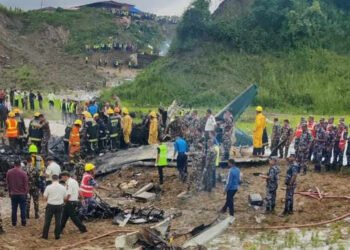According to state television, a police station in the predominantly Sunni city of Zahedan in Iran’s volatile southeast was stormed by gunmen and suicide bombers on Saturday, resulting in the deaths of two police officers and four attackers. Zahedan, the capital of Sistan-Baluchistan province, was previously a site of intense protests during a nationwide unrest last year that was triggered by the death of a young Kurdish woman while in the custody of the morality police.
Jaish al-Adl, a militant group operating in the area, claimed responsibility for the attack through a social media post. They stated that it was a retaliatory action for the deaths of protesters who were killed by security forces on September 30, 2022. The targeted police station was referred to as “one of the main perpetrators of the Bloody Friday calamity in Zahedan.”
Amnesty International reported that at least 66 individuals were killed by security forces during the crackdown on demonstrators on September 30. Following the incident, Zahedan’s police commander and a police station chief were dismissed by the authorities, and Supreme Leader Ali Khamenei sent a delegation to engage in negotiations with critical Sunni Baluch clerics.
The lead-up to the September 30 crackdown saw an escalation of public anger in Zahedan after allegations circulated on social media regarding the rape of a local teenage girl by a police officer.
Molavi Abdolhamid, Iran’s prominent Sunni cleric and a longstanding critic of the country’s Shia leaders, denounced the attack on the police station, urging residents of Baluchistan to refrain from actions that could undermine security.
Sistan-Baluchistan, which shares borders with Pakistan and Afghanistan, is recognized as one of Iran’s most impoverished provinces and a significant route for drug trafficking. Human rights organizations assert that the Baluch minority, estimated to comprise up to 2 million people, has been subjected to discrimination and repression for decades.
- Taking lead from Al Arabiya



 Pakistan Rupee Exchange Rate
Pakistan Rupee Exchange Rate





